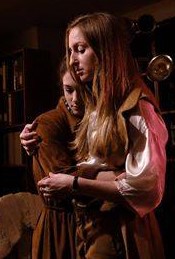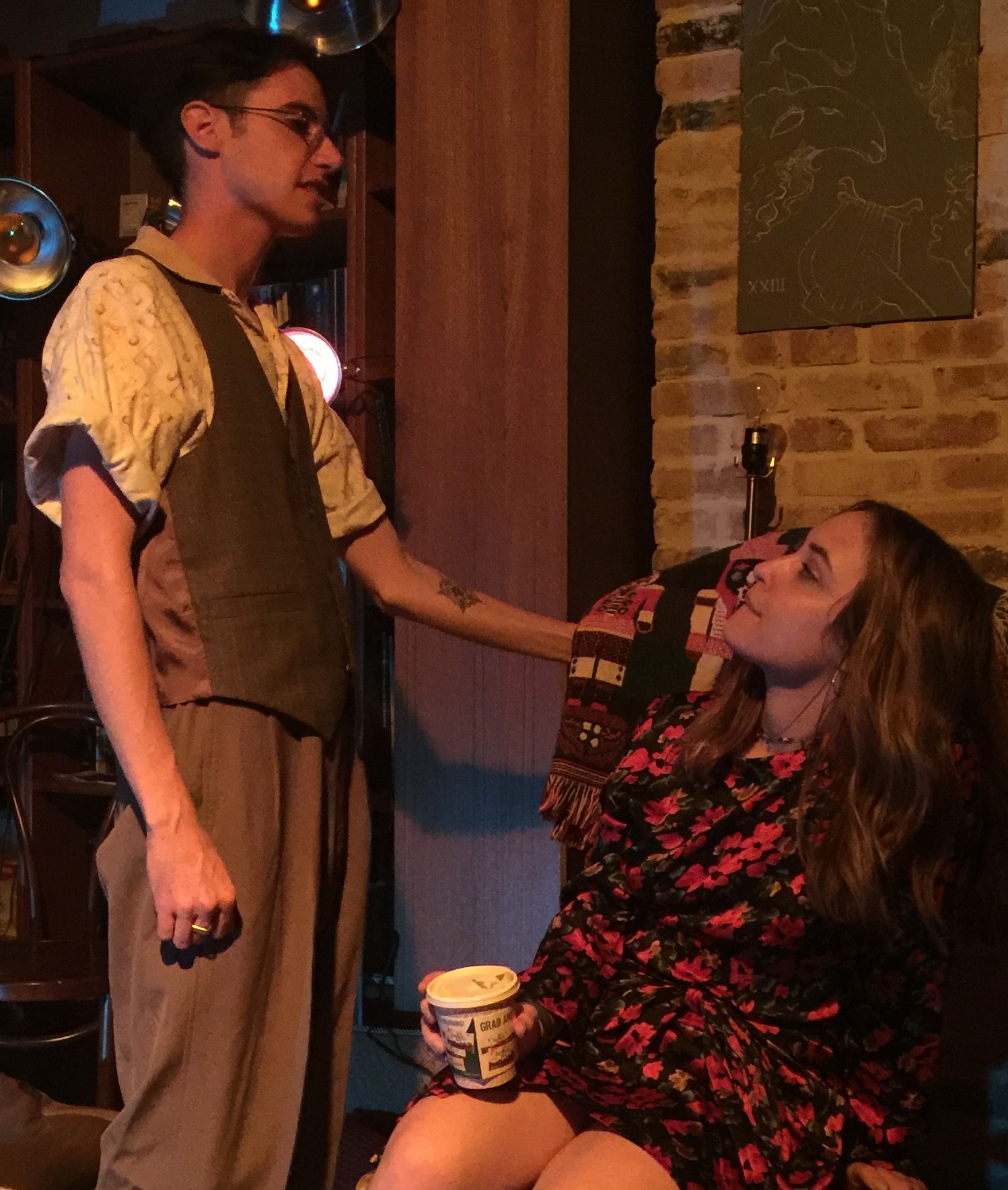Ardor, the fourth play by playwright and director Matthew Gasda, reflects an impressive literary talent. Gasda has given the actors in his new ensemble drama material that is raw, fresh, honest, poetic, deep, daring and, clearly, a joy to perform. Their conversations are at once innocent and knowing, as well as both painfully cutting and a pleasure to hear.
Gasda, who has also directed, employs a convention that invites the audience to get an up-close-and-uncomfortable view of his characters’ neurotic and narcissistic lives. Ardor is set in one sprawling but cozy living room in a farmhouse owned by Uncle André (Greg Petroff)—a painter and philosopher who inspires the group of young people to be free-thinking creatives. Representing Home with a capital H, the farmhouse serves as a regular retreat for a group of young artists outside the city, a place they keep coming back to; it offers itself up as a pillar which they lean on and provides them with a set of standards that they either aspire to or revolt against.
Notable among the group are Melissa Nelson’s Chloe, a songwriter with endocrine problems, who adds a layer of levity and sensitively portrayed self-deprecation, and Mikaela Shealy’s Sophia, André’s model, whose stillness is suitably watchable. The character of André, the only 50-something, stands out like a sore thumb among the 20-somethings and, unfortunately, breaks the flow. While he remains frozen at his easel he does not deflect from the aesthetic, but when he breaks out of his pose, joins into the action and discourse, he does. Without giving too much away, Uncle André’s role in the drama might have worked well as a voice off.
In drip-feed fashion, the characters take turns fluidly and fluently bitching, moaning, mocking and lamenting. They include Fred, a writer (Ladi Akinwande); Alana, a dancer (Anamari Mesa); Charlie, a writer (Vincent Santvoord); Leo, an actor (Tad D’Agostino); Victoria, a theater director (Kim Sweet); and Arthur, Leo’s lover (Xavier Clark).
Gasda uses an overall aesthetic to create an intimate and heady atmosphere in the house that envelops the audience, who are seated among in an eclectic array of chairs, love seats, and benches, literally on stage. It would not be surprising if the cast were armed and ready for improv should this set-up inspire impromptu interaction with Gasda’s text—a sticky, sweet, sometimes bittersweet, substance attracting them like a swarm of bees to honey. Contributing to this fly-on-the-wall perspective is what designer Jackie Brockel calls “environmental set design,” which cleverly utilizes what was in situ at the venue.
The fourth wall actually does stretch further, with Gasda himself calling “Intermission” in a rather cutesy fashion, then making set changes, barefoot and in full view, while welcoming the audience to “feel free to look around; I’ll get more coffee on.”
In spite of the power and purpose that drives the first three acts, the play loses momentum in the fourth. It is at times inaudible, as if gets lost in its own introspection and ends up talking to itself. Only Clark’s antics as Arthur give rise to humor, but it’s too late to save the final act from a sinkhole. Even if it does end by tying itself up in a tidy allegorical bow, at just under three hours Ardor becomes arduous.
As a theatrical experience Ardor works, and as an ambitious play produced on a small budget, it works very well. As a play for its time, and for posterity, it is questionable whether an ego-bound drama will appeal in the 21st century, when the current zeitgeist extols the virtues of selflessness for the survival of the human race.
Matthew Gasda’s Ardor plays through Dec. 3 at St. Mary Magdalene Church (70 W. 107th St). Performances are at 8 p.m. Nov. 15-18, 20, 30, and Dec. 1 and 3. Tickets are $18 and may be purchased by visiting www.brownpapertickets.com/event/2697606.





